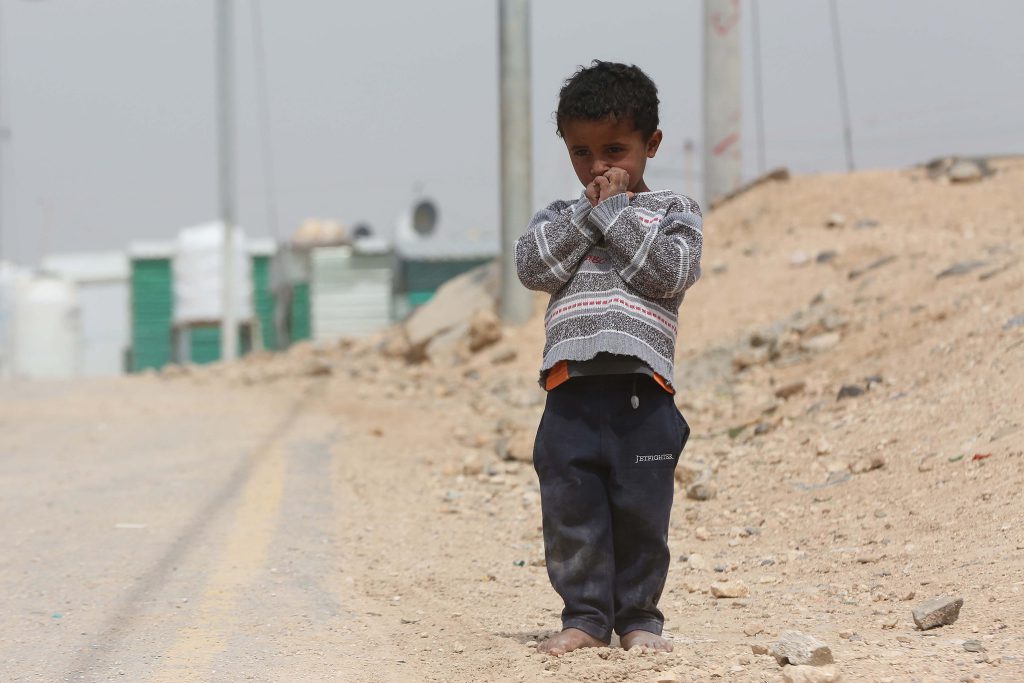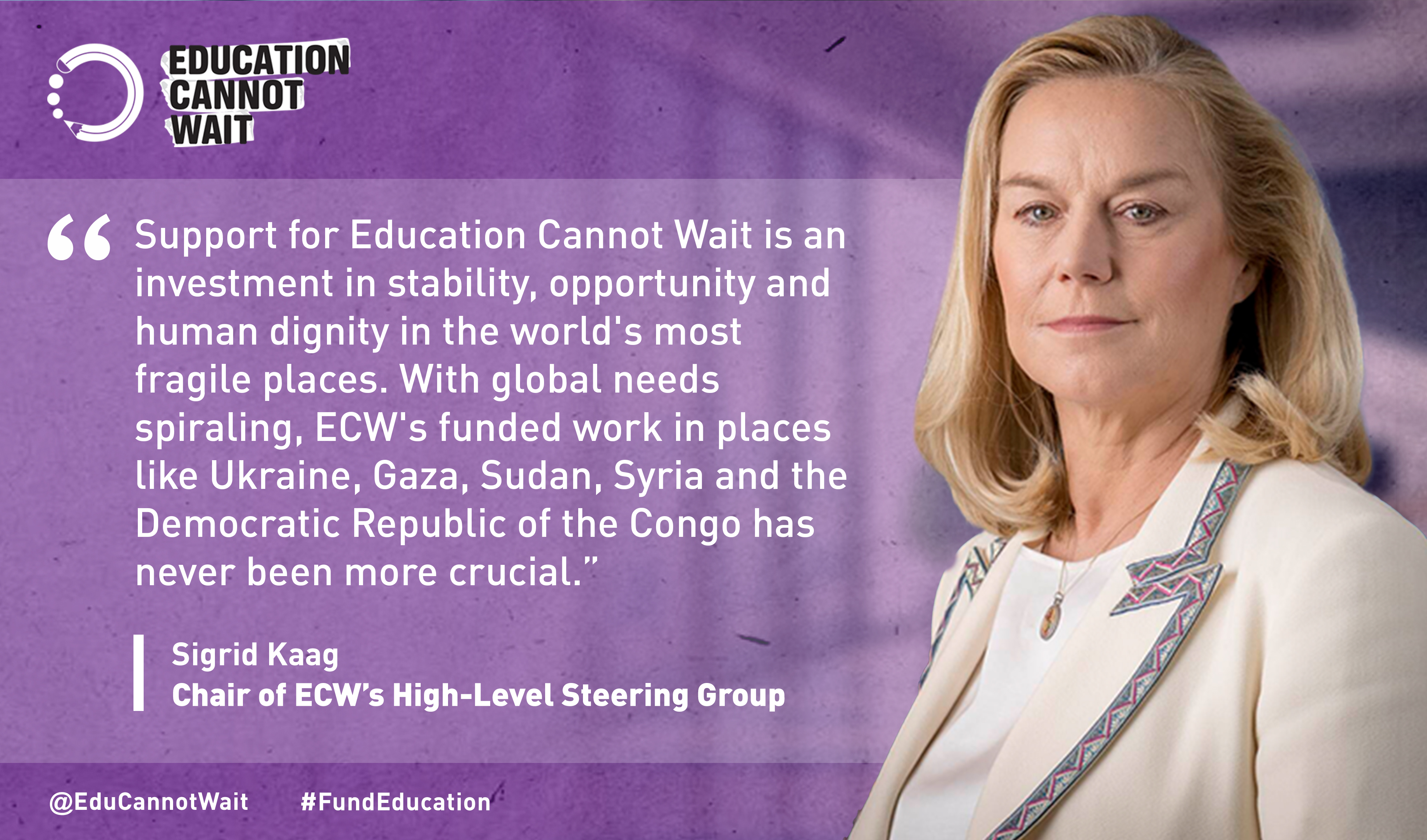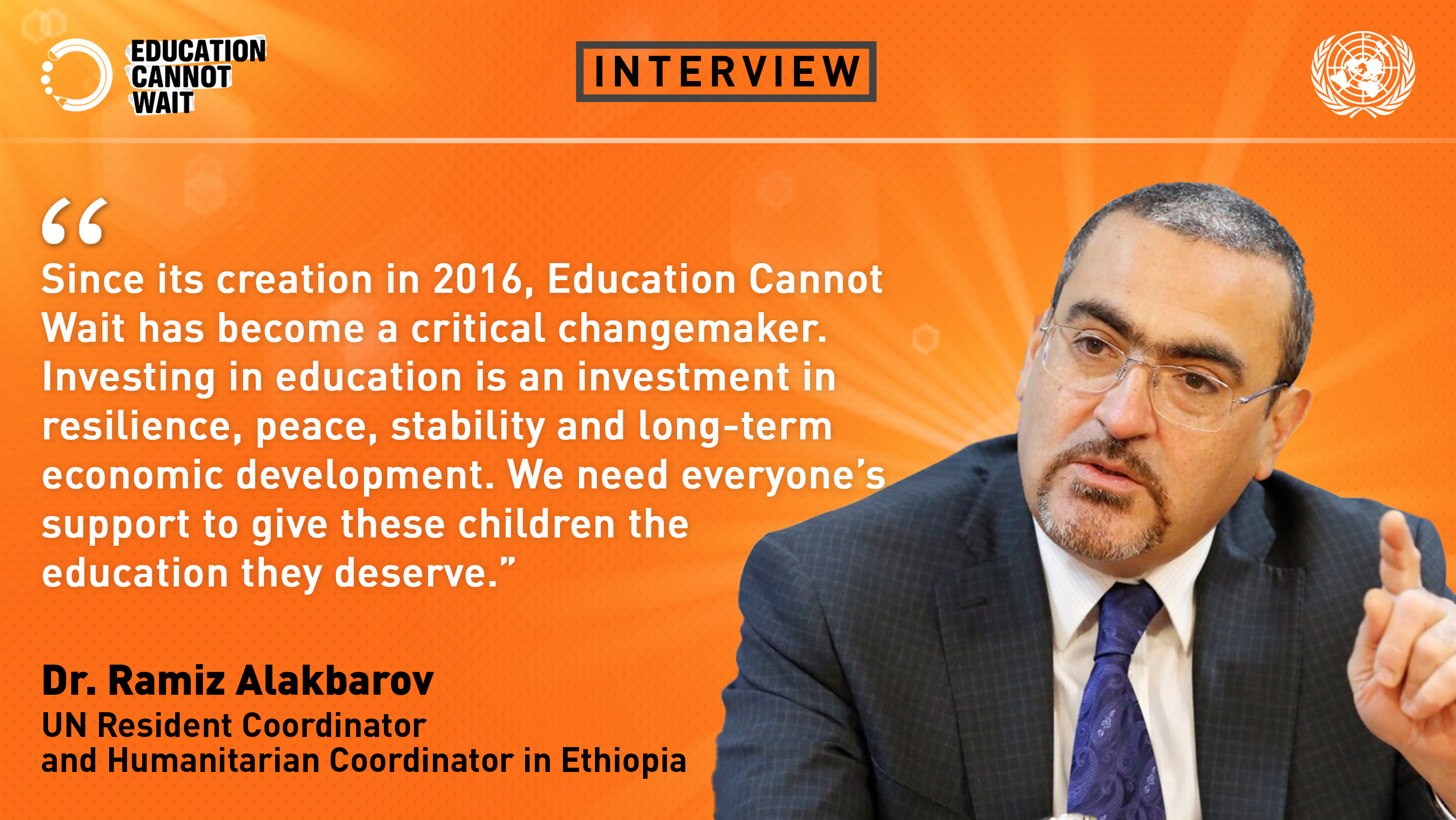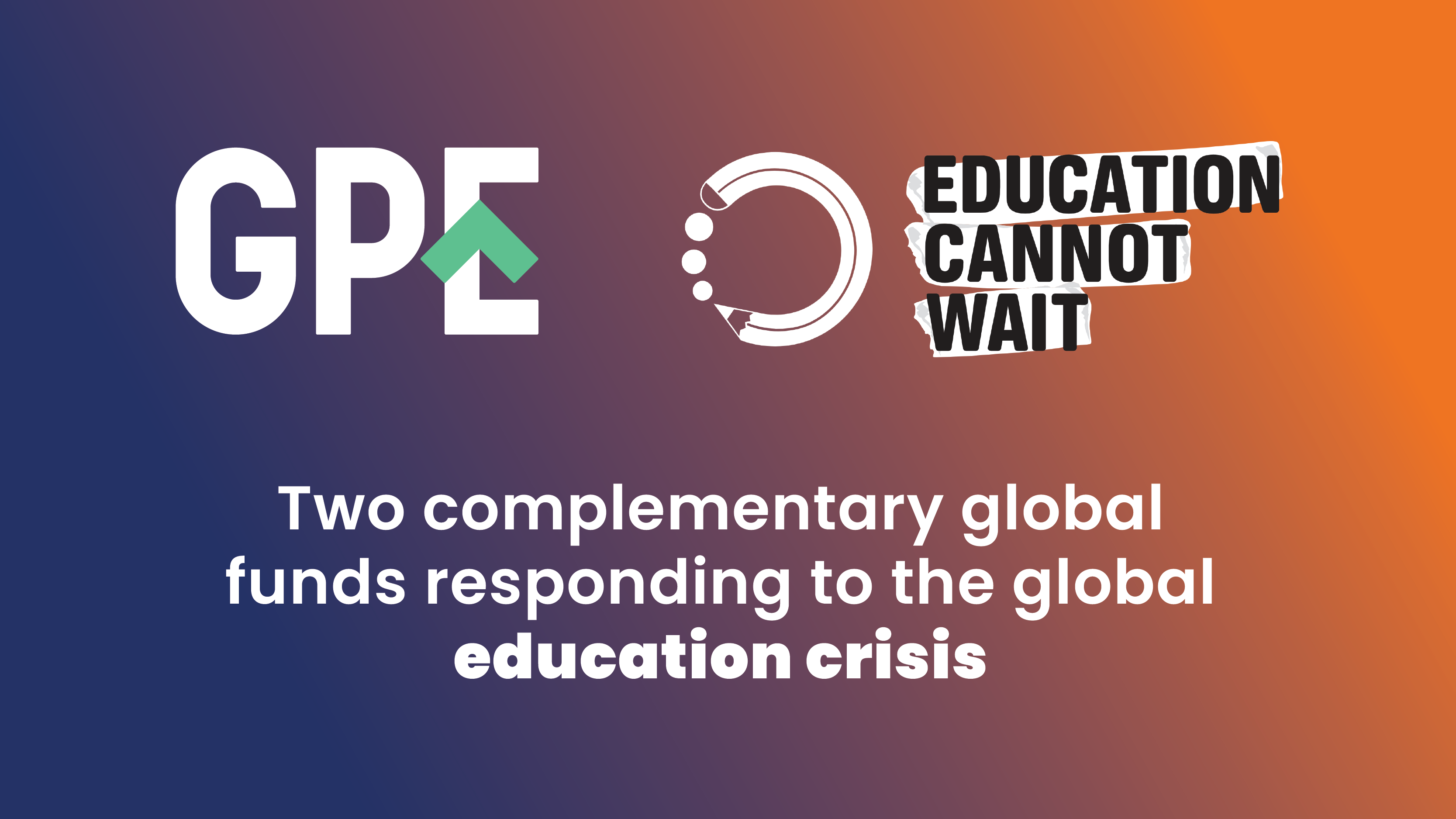The Protective Role of Education

GLOBAL EDUCATION CLUSTER ANNUAL PARTNERS MEETING HIGHLIGHTS UNIVERSAL RIGHT TO EDUCATION AND PROTECTION
Special Contribution By Nancy Kanwal, Global Education Cluster
Protection is a universal responsibility all humanitarian actors must work towards. Reaching this goal will require equitable education for every girl and boy on this planet – even those living in crisis; complemented by more tailored, child protection services for children who need them.
This was a central message at the 2019 Global Education Cluster (GEC) Annual Partners Meeting that brought together over 130 education in emergencies coordination staff, ministries of education, colleagues from the child protection sector and other key partners.
“Education in emergencies is a life-saving and life-sustaining intervention, having access to safe learning places helps children and young people heal from the trauma and duress inflicted by humanitarian emergencies,” said Yasmine Sherif, Director of Education Cannot Wait, a global fund hosted by UNICEF that seeks to mobilize US$1.8 billion in resources by 2021 to improve educational opportunities for children living in crisis.
Education delivered in a protective environment alleviates suffering, heals trauma, provides a sense of normalcy and structure for children and youth whose lives have been disrupted by conflict or disaster. Protecting education from attacks is essential to support the psychological and physical well-being of children and youth in humanitarian emergencies.
“We, as the education sector, must work better with child protection actors to identify and tackle other barriers and vulnerabilities preventing children from accessing a protective education. This entails looking beyond schools and facilities,” said Maria Agnese Giordano, Global Education Cluster Coordinator.
With this clear linkage in mind, discussion between education and child protection practitioners and partners resulted in recommendations for improved collaboration on joint needs analysis, planning and review, implementation, and the reporting and monitoring of attacks on education for the Cluster to take forward.
“The Humanitarian Needs Overview and Humanitarian Response Plans are blueprints guiding our response. It is imperative we use child protection data to inform education planning and response outlined in these documents,” said Anthony Nolan, Global Education Cluster Coordinator.
As Panos Moumtzis, Regional Humanitarian Coordinator for the Syria crisis highlighted in his address, education is an issue going beyond a single organization or actor – meeting education needs requires collective efforts. Coordination among education in emergencies responders and child protection counterparts is integral to meeting education needs in a protective and efficient manner to reduce duplication and ensure even more children and youth are supported.
Cognizant of the critical role of coordination, Education Cannot Wait reiterated their support to empower the Global Education Cluster in fulfilling its mandate to ensure an efficient, predictable and accountable education response to meet growing education needs of children and young people living in humanitarian emergencies and protracted crises.
Education Cannot Wait and the Global Education Cluster have strengthened their partnership over the last two years. One key output has been collaboration to provide in-country support for the Multi-Year Resilience Programme development process. Education Cannot Wait is working with partners from across the human-development spectrum to develop multi-year educational responses for 25 priority countries, which it will roll out by 2021.
As part of its work to identify and scale up best-practices and innovation in the education in emergencies sector, Education Cannot Wait is also supporting the Global Partners Project. This initiative brings together the Global Education Cluster, UN Refugee Agency (UNHCR) and Inter-agency Network for Education in Emergencies (INEE) in working with the Overseas Development Institute (ODI) to develop an evidence base and recommendations to strengthen joint planning, response and coordination in education interventions.
The Global Education Cluster 2019 Annual Meeting was held from the 27 to 29 March in Amman, Jordan, following a two-day retreat for Global Education Cluster coordination staff.
Learn More
- Get a glimpse at key moments from the meeting by checking out #GECMeeting2019 on twitter, and following the cluster on Twitter or Facebook
- View short videos with coordination staff and partners on key themes from the meeting. Education Protects | Education Cannot Wait
- Read the GEC Annual Meeting framing paper



